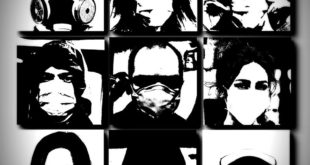The COVID-19 pandemic has clearly had global physical, social, economic, and psychological impact worldwide. Across the world, there are approximately 95 million cases of COVID-19 with over 2 million people who have died as a result (https://coronavirus.jhu.edu/map.html). In the United States, approximately 400,000 people have died with over 2 million …
Read More »COVID-19 Psychological Factors Associated with Pain Status, Pain Intensity, and Pain-related Interference
The COVID-19 pandemic changed the world practically overnight, having infected close to 100 million people, 2 million of which have died. Significant efforts have been made to develop a vaccine to slow the spread of the disease, but this approach neglects a number of important facets, including those that may …
Read More »Getting down to business: an examination of occupational outcomes in cognitive behavioral therapy for depression
Cognitive-behavioral therapy (CBT) is an effective treatment for people with depression. Decades of research has found CBT reliably reduces symptoms of depression for many people (Strunk et al., 2017). However, reducing symptoms of depression is not the only goal clients have when starting a course of CBT. Many people in …
Read More »Difficulties with emotion regulation and drinking during the COVID-19 pandemic among undergraduates: the serial mediation of COVID-related distress and drinking to cope with the pandemic
As the coronavirus disease 2019 (COVID-19) continues to spread rapidly across the U.S., the impact of the pandemic on behavioral and mental health remain unclear. Although it is normative to experience anxiety and fear in the face of an on-going health threat such as the COVID-19 pandemic, some individuals may …
Read More »Worry about COVID-19 in relation to cognitive-affective smoking processes among daily adult combustible cigarette smokers
The global Coronavirus 2019 (COVID-19) pandemic is colliding with mental and physical health comorbidities. Tobacco use persists as the global leading cause of preventable death and disability and is associated with an increased risk for cardiovascular diseases, lung disorders, cancers, diabetes, and hypertension – conditions thought to exacerbate COVID-19 symptom …
Read More »Disgust sensitivity mediates the link between homophobia and sexual orientation obsessive-compulsive symptoms
Obsessive-compulsive disorder (OCD) is an impairing psychological disorder characterized by the existence of persistent, intrusive obsessions and compulsions (American Psychiatric Association, 2013). A considerably understudied subtype of OCD is sexual orientation OCD (SO-OCD) which consists of obsessions relating to an individual’s sexual orientation. Individuals with sexual orientation obsessive-compulsive (SO-OC) symptoms …
Read More »Are we on the same page? A comparison of patients’ and clinicians’ opinions about the importance of CBT techniques
Every psychotherapeutic process consists of two main protagonists: The therapist and the patient/s. There is often a misconception that this should be a hierarchical relationship, where the therapist’s command ought to be followed by the patient. However, this dynamic should in fact be one of equals, where both the therapist …
Read More »Evaluating the effects of guided coaching calls on engagement and outcomes for online acceptance and commitment therapy
Online self-help interventions, in which individuals learn psychological skills on their own to address mental health concerns, are effective and can have broad reach. However, people also regularly struggle with adhering to these programs when using them on their own. Initial research was fairly clear in suggesting that receiving additional …
Read More »Anxiety, depression, and health anxiety in undergraduate students living in initial US outbreak “hotspot” during COVID-19 pandemic
Millions of college and university students in the United States have been affected by the COVID-19 pandemic, with wide-spread closure of campuses and displacement of students. Though necessary to slow the spread of the COVID-19 virus and protect students and staff, the closure of campuses resulted in the sudden loss …
Read More »Personal practice in counselling and CBT trainees: The self-perceived impact of personal therapy and self-practice/self-reflection on personal and professional development
What’s best for therapy trainees – personal therapy or self-practice/self-reflection? For over a hundred years, it’s been part of tradition and belief in many schools of psychotherapy that personal therapy is central to the development of effective therapist skills. For instance Freud wrote: “But where and how is the poor …
Read More » Cognitive Behaviour Therapy A peer reviewed, multidisciplinary journal devoted to the application of behavioural and cognitive sciences to clinical psychology and psychotherapy.
Cognitive Behaviour Therapy A peer reviewed, multidisciplinary journal devoted to the application of behavioural and cognitive sciences to clinical psychology and psychotherapy.









